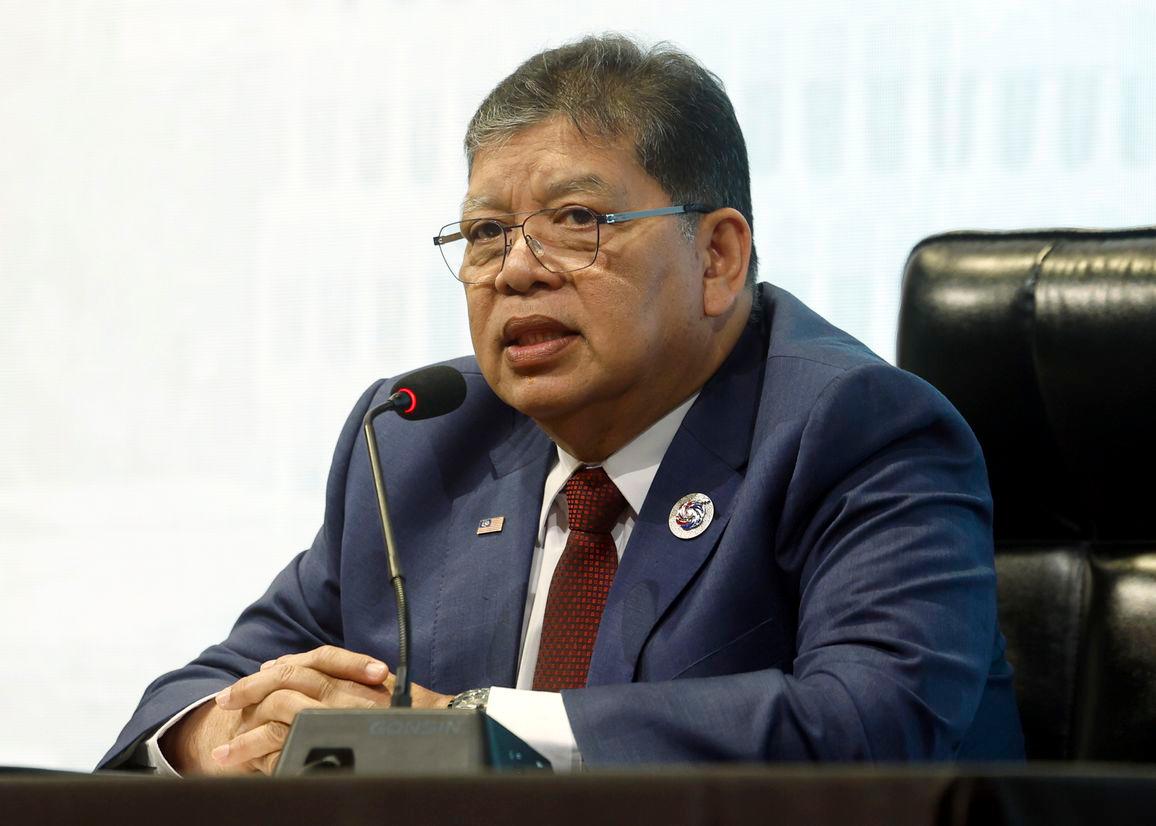KUALA LUMPUR: ASEAN parliamentarians have made a clear and unified call for an end to the violence in Gaza, Palestine, emphasising that the regional bloc has not turned a blind eye to the ongoing humanitarian crisis, according to ASEAN Inter-Parliamentary Assembly (AIPA) president Tan Sri Dr Johari Abdul.
The matter has not been ignored and was recently discussed at AIPA meetings, he said in response to criticisms over ASEAN’s perceived silence on the Gaza conflict, especially when compared to its strong stance on issues in Myanmar and Ukraine.
“If you look at our previous statement, which was a consensus among all leaders, we called for an end to the violence in Gaza. This includes a ceasefire, unimpeded humanitarian assistance, and an end to acts of genocide.
“It is a very strong statement. There’s nothing to hide,” Johari, who is also the Dewan Rakyat Speaker, said at a press conference after the 14th ASEAN-AIPA Leaders’ Interface, held in conjunction with the 46th ASEAN Summit here today.
He said as ASEAN is doing its best to solve the Myanmar problem, he also hopes that there will be more discussions among parliamentarians and government leaders in ASEAN to also push for collective efforts regarding the Gaza issue.
“The whole world knows what’s happening in Gaza and we hope that there are more inner meetings to come to discuss this issue,” he said.
Asked about Myanmar’s military government’s push to hold national elections by the end of the year, Johari noted that ASEAN’s approach focuses on engagement and dialogue with all parties involved.
“There are many factions and reasons for the ongoing conflict. Each group has its own aims, desires, and needs. To understand the situation, ASEAN has decided to engage with all parties and we’ve received some positive responses, and we hope a mutual understanding can be reached without interference from the outside,” he said.
Meanwhile, on whether the ASEAN summit under the shadow of escalating United States (US) tariff tensions could be one of most critical summit to its members, especially for export-orientated nations, Johari said ASEAN leaders are exploring ways to address the situation.
He said while each country may deal with the US individually, there is also a shared understanding among ASEAN members on how to navigate these challenges.
“The ASEAN leaders have approached a way on how to handle whatever the President of the US is saying. But nevertheless, I guess ASEAN also allows each and every country to deal directly, as long as I think there’s a perimeter of understanding between ASEAN leaders,” he said.
The ASEAN-AIPA Leaders’ Interface is a dedicated platform for dialogue between ASEAN heads of state/government and the Speakers, Deputy Speakers, and representatives of AIPA Member Parliaments to align regional priorities through inclusive, multi-stakeholder governance.









